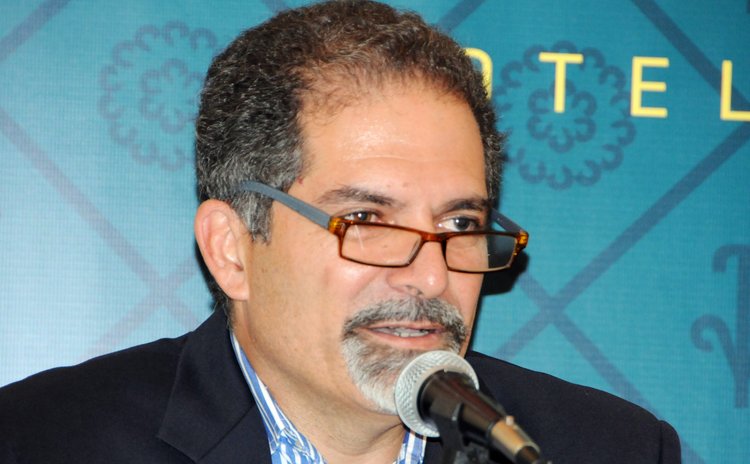DHTA plans to hold government to election promises

They've heard the promises.
"The Dominica Labour Party will continue to address the stated constraints to developing the tourism sector, and more."
They've seen the pledges.
"(The DLP will) improve the environment for investing in tourism by reviewing all legislation, fees and other charges applied to transactions within the sector."
"They've noted the plans.
"(The DLP government) has established tourism as a high priority sector, based on the country's natural and cultural resources upon which to develop a sustainable industry. It is now poised to take advantage of the expanding global market for international travel and the growing interest in environmental conservation."
The hotel sector here has taken heed of every declaration, every vow, every campaign promise made to the tourism industry as the DLP sought a new mandate from voters last December. There were close to 20 bullet points dedicated to tourism in the party's manifesto, including promises to "work closely" with hoteliers to introduce condominiums and timeshare properties, and to spend more on marketing.
Now that the campaigning is over and life has returned to normal, hoteliers here are not only hoping that it won't be business as usual and that the promises made will be kept, they also intend to be proactive in the process.
"Yes, commitments were made…," said Gregor Nassief, the president of the Dominica Hotel & Tourism Association (DHTA), the organization that advocates on behalf of the tourism private sector here.
The hotel sector has been experiencing paroxysms of pain for a very long time, with symptoms of a series of recurring maladies that have had many of them shriveling, sagging and fearful that they were tottering and stumbling down the road to a sad little death.
They have been hamstrung by a combination of low occupancies, high operating utilities costs, limited availability of cash flow for product and marketing innovations and limited opportunities for group and cluster approaches to procurement of goods and services.
There has also been the abaist nuisance that is the value added tax (VAT) which is seen as a disincentive. Over the years the prime minister has repeatedly refused to compromise on this issue, and in 2012, burdened by their many problems, the DHTA turned to the National Bank of Dominica (NBD) in an attempt to ease some other operational related pains.
A year later, in the lead up to the 2013/14 budget, private sector groupings, including the DHTA, met with Skerrit and again pleaded for relief. In a document presented to the prime minister, they recommended that VAT, which they described as a double taxation to the visitors, "not be charged on a non-compulsory service charge." They also suggested that in order to improve competitiveness, VAT on all tourism services should be reduced to 10 per cent and the tax on the accommodation sector be cut to 7.5 per cent or lower. Again, the prime minister refused to back down.
But in the lead up to the 8 December general election, Skerrit promised to ease the hoteliers' pain by filling a number of the prescriptions which they have been presenting over the years. Last September, parliamentarians approved the VAT exemption on hotel service charges, and, as the keynote speaker at the DHTA's 45 annual general meeting on 6 November, the prime minister stressed the government's decision to repeal the VAT on staff meals and complimentary rooms and his administration's "willingness" to review Dominica's destination marketing budget to bring it in line with what is required under the Tourism Master Plan.
"Yes, commitments were made in terms of repealing VAT on meals given to staff at no cost and rooms given to the travel trade at no cost. Commitments were also made to revise and modernize our fiscal incentives regime, to look at our destination marketing budget, as well as a review of the VAT rate on rooms and food & beverage with a view to harmonize it," Nassief noted to The Sun. "There is also the ferry arrival and departure process which negative affects the visitor experience, as well as the issue of vagrancy and the Roseau vendors. The DHTA will continue to engage the Government on these issues, to propose solutions and provide support and to work together to move the industry forward."
The tax on service charge, staff meals and other such staff benefits has been particularly troubling, an issue Nassief raised in an interview with The Sun last April. So too has been the tax and interests charged on rooms given to travel agents, which the hoteliers see as a penalty on monies you haven't received.
Conversely, while the Master Plan has called for between EC$8.5 million and EC$12 million in marketing funds, only about EC$4-million has been allocated. However, the many ailments facing the sector could soon be over if the vows made at election time are not broken, as the DHTA boss anticipates a more dynamic sector.
"Strong leadership within the private and public sector and a common vision (are), I believe, what is required to achieve a more dynamic tourism sector. And 2015 needs to be the turning point in this regard," he told The Sun.
They've heard the promises and the assurances. Now the hoteliers want a permanent end to the paroxysms of pain and the recurring maladies that have plagued them for much too long.




